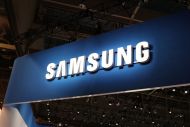Android has taken over the smartphone world in a rather short time, powering almost 90 percent of all smartphones in the world. While Samsung has arguably been the biggest reason the little green droid has become as popular as it is today, thanks to the successful Galaxy lineup of phones and tablets, it seems that the Korean manufacturer might have missed the chance to actually own Android instead of just being a hardware partner that puts its own spin on the OS, according the book Dogfight: How Apple and Google Went to War and Started a Revolution.
Android started out as a project by Andy Rubin and seven others part of a small company, which was later acquired by Google. But before the search giant swooped in on the opportunity to do so, Andy Rubin and his team reportedly approached Samsung in order to secure funding for the OS. However, according to the book, the team of Samsung executives who met with Rubin were not at all impressed with what they heard, and refused to back them financially, mainly due to the small size of their development team. At the time, Samsung was heavily invested in Symbian, which was backed by then giant Nokia and numerous other partners, so it shouldn't come as a surprise that it didn't see the potential of backing an eight-man team with an unproven OS.
Looking at Android today, that was obviously a bad move, though one has to wonder whether the OS would have become as dominant as it is today had it been Samsung instead of Google who had acquired it. Bada, Samsung's first attempt at an in-house OS, never made an impact on the market; meanwhile, Tizen, the company's upcoming mobile OS that's being co-developed with Intel, has failed to make it to market amidst carrier hostility and numerous delays. That is a good indication of the future that Android might have met had it not been acquired by Google, so it's perhaps for the good of all that those Samsung executives didn't see eye-to-eye with the enthusiasm of Rubin and his team.







